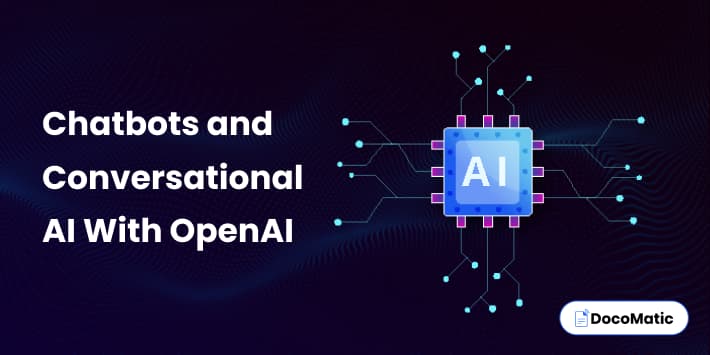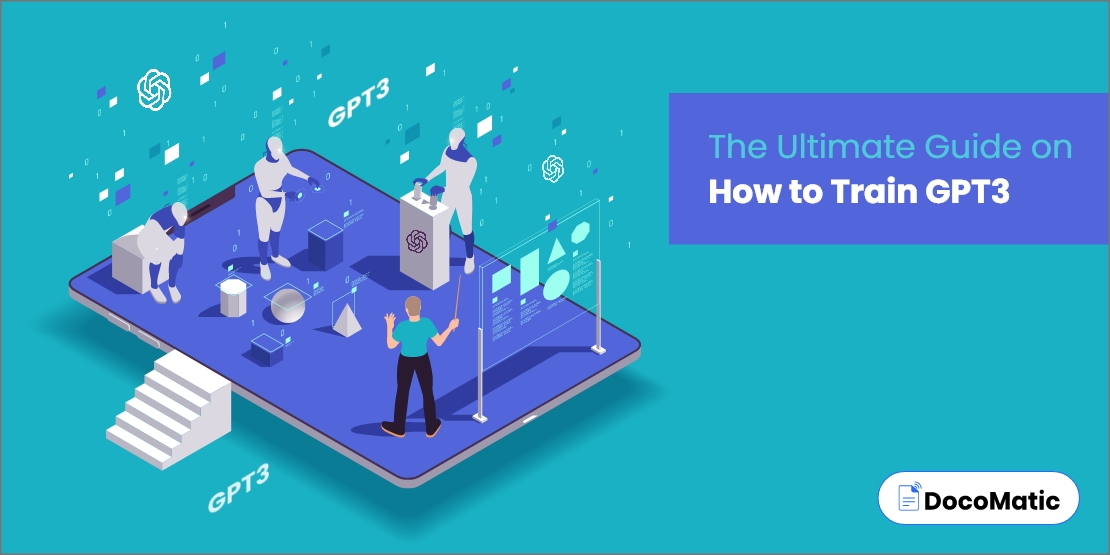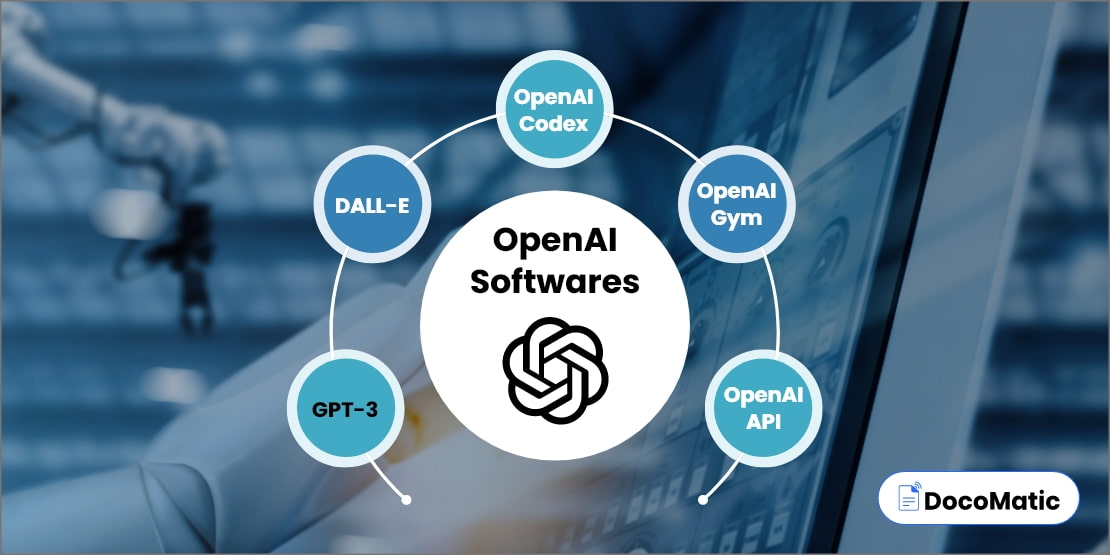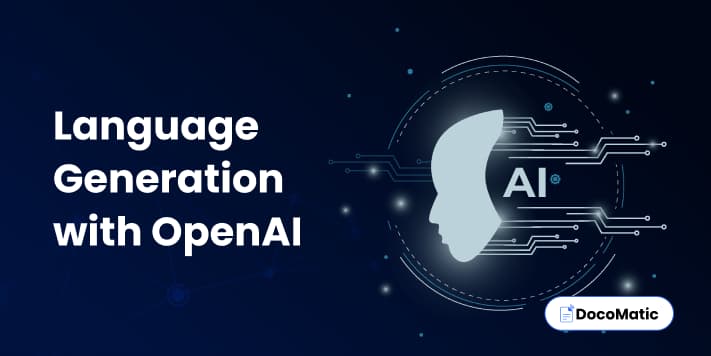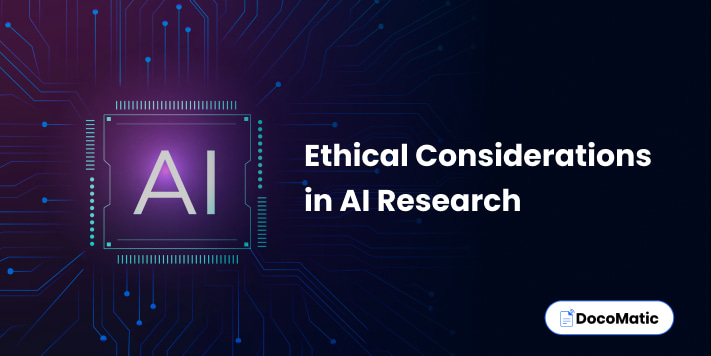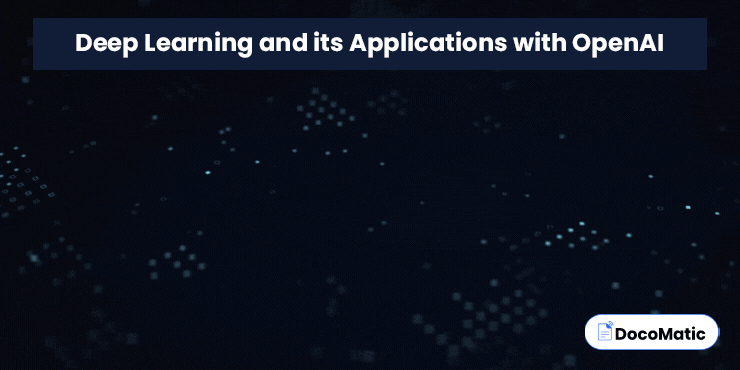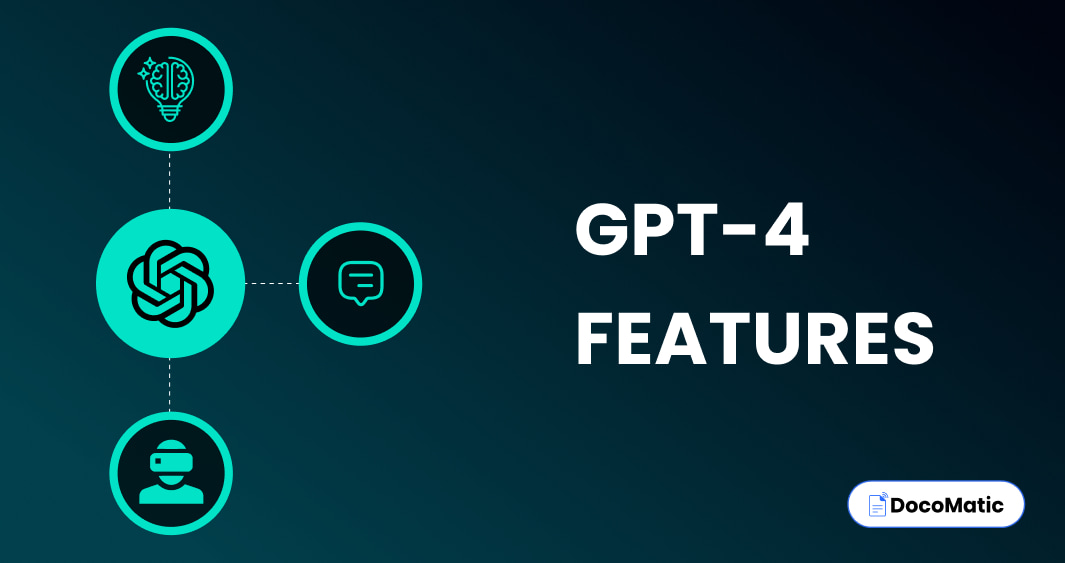Have you ever encountered long wait times and automated responses when contacting customer service?
However, things have begun to change as a result of technological advancements. The way businesses now connect with their customers is changing, thanks to chatbots and conversational AI.
Chatbots are virtual assistants responding to basic customer questions without human intervention. But now conversational AI solutions elevate things to a whole new level by utilizing machine learning algorithms and natural language processing to produce more intelligent and human-like interactions.
A leading company in this space, OpenAI creates cutting-edge algorithms and tools that enable chatbots and conversational AI to comprehend and answer complex client inquiries. This blog will teach us everything there is to know about Chatbots and Conversational AI with OpenAI.
Table of Content
Key Features of Effective Conversational AI
Since their inception, Conversational AI and Chatbots have advanced significantly. Earlier Chatbots could only respond to certain words or phrases with pre-defined responses. But, the Conversational AI system now allows more human-like customer interaction because of their enhanced intelligence.
Some of the features of an effective conversational AI include the following:
1. Natural Language Processing (NLP)
It is the backbone of conversational AI, allowing the system to interpret and understand the intent of the user’s message rather than just keywords.
2. Personalization
Personalization is the key to providing an excellent customer experience. The system utilizes customer data and preferences based on their interaction history to provide more relevant and personalized responses.
3. Contextual Awareness
A conversational artificial intelligence system can understand the context of the conversation. By understanding the context of the conversation, the system can provide a more personalized response to the user.
4. Multilingual Support
A conversational AI platform can provide support in multiple languages. It helps businesses to provide customer support regardless of the user’s language.
5. Omnichannel
Conversational AI chatbots can operate through text and voice commands (voice assistants like Siri). However, basic chatbots only respond to text commands.
This is how businesses can deliver exceptional customer service by incorporating the above features. We’ll examine the evolution of conversational AI and OpenAI’s contribution to this technology in the next section.
Development of Conversational AI and OpenAI’s Contribution
Conversational AI has evolved significantly from a simple chatbot to a sophisticated system with the help of Artificial Intelligence (AI) and Natural Language Processing (NLP). OpenAI is a significant contributor to the advancement of conversational AI.
- OpenAI is an artificial intelligence research laboratory founded in 2015.
- OpenAI has created language models like GPT-2 and GPT-3 that can understand human language and generate writing similar to what a human would write.
- OpenAI has developed tools enabling programmers and businesses to quickly and simply build chatbots and other conversational AI applications.
- Various enterprises and industries are now widely using conversational AI tools.
Because of OpenAI’s efforts, conversational AI technology is ready to advance and revolutionize how businesses engage with customers. So, let us find out how customer service is being transformed with the help of OpenAI.
How is Customer Service Being Transformed by OpenAI?
Chatbots and conversational AI technology from OpenAI are revolutionizing customer service in a variety of ways. Some of them are:
1. Streamlined interactions
By streamlining and automating conversations, OpenAI’s chatbots have revolutionized customer service. Customers can now quickly interact with the chatbots instead of waiting on hold. As a result, interactions have become more streamlined and effective for both customers and support staff.
2. Enhanced customer experience
Conversational AI and chatbots from OpenAI may tailor conversations based on past interactions, customer preferences, and behavior. It can offer customized advice and specialized support as compared to traditional chatbots. This customized support makes customers feel valued and appreciated, boosting their loyalty and satisfaction levels.
3. Cost-efficient
By automating frequent queries and tasks, chatbots and conversational AI can lower the cost of customer care operations. As a result, there will be less need for human support employees. Additionally, managing multiple interactions at once can help to boost efficiency and cut down expenses.
4. Available 24/7
With the OpenAI in place, businesses can provide 24/7 customer support. As chatbots are capable of responding to complex customer issues and providing assistance irrespective of time. This leads to a more satisfying customer experience as the customer doesn’t have to wait until business hours for any type of help.
5. Better insights
The chatbots developed by OpenAI can offer businesses insightful data on the preferences, behavior, and pain areas of their customers. This information can be utilized to target marketing campaigns, enhance customer service operations, and improve products and services.
This is how customer service is being transformed by Open AI. But, what are the advantages it offers to the customer service industry, let us find out.
Advantages of Conversational AI and Chatbots in Customer Service
Conversational AI and chatbots can benefit customer service in multiple ways:
- They can assist organizations in efficiently handling many queries and offering 24/7 customer service. This reduces the response wait time, providing instant support
- By examining consumer data and offering appropriate responses, businesses may give customers a more tailored experience.
- Automating customer service tasks allows firms to lower operational costs by reducing the need for human customer service representatives
- The rate of customer satisfaction can also be increased by giving prompt responses and addressing problems efficiently.
- Businesses can learn about client wants and preferences by analyzing customer interactions. It can keep users interested in the conversation by providing tailored and interactive experiences, which will enhance their overall user experience.
- For a more smooth customer experience, chatbots and conversational AI can be integrated with other company systems, such as CRM software.
- A company’s reputation and brand image can be strengthened by consistently offering high-quality customer support via chatbots and conversational AI.
Overall, chatbots and conversational AI can potentially transform how businesses interact with customers. Going ahead, let us explore how OpenAI’s technology is being used in the real world.
Examples of OpenAI’s Technology in the Real World
As we have seen, OpenAI’s chatbots and conversational AI have been revolutionizing customer service. Let’s study more closely how companies like Microsoft, Zendesk, Discord, and Reddit are already getting benefits from OpenAI’s technology.
1. Microsoft
Microsoft and OpenAI have been working together for a while, and Microsoft has included OpenAI’s GPT-3 language model in its Power Apps platform. Through this integration, chatbots and other conversational interfaces can be developed with more advanced natural language processing capabilities, enhancing their efficiency and usefulness.
2. Zendesk
Popular customer service platform Zendesk has incorporated OpenAI’s language models into their AI-powered chatbots to improve their ability to comprehend and address consumer queries. The integration has resulted in more effective and efficient customer service interactions, which have improved customer satisfaction rates.
3. Discord
The well-known voice and chat service for gamers, Discord, has been testing with OpenAI’s GPT-3 to enhance chatbot capabilities. GPT-3 enables Discord’s chatbot to comprehend and reply to more sophisticated user queries, giving consumers a more customized solution.
4. Reddit
The social media site Reddit has been employing OpenAI’s GPT-3 to assist with content moderation. GPT-3 has been trained to identify and flag potentially hazardous or inappropriate content, making it simpler for Reddit’s human moderators to review and take action on such posts.
These were only a few instances of how OpenAI’s technology is actually being utilized to enhance a variety of business sectors and their customer care experiences.
FAQs
There is a slight distinction between chatbots and conversational AI, despite the fact that both are employed for automated interactions. A chatbot is a computer program made to replicate a conversation with a human user, whereas conversational AI is a more sophisticated technology that employs machine learning and natural language processing to provide more intelligent and human-like interactions.
Yes, there are several industries where chatbots and conversational AI suit the best because of their automation abilities that improve customer service. Some examples are- Retail, banking & Finance, eCommerce, Healthcare, Travel, Education, and Telecoms, that deal with a huge volume of client questions daily.
No, conversational AI and chatbots cannot fully replace human customer service agents, as there are situations that still require human intervention. Not only this, some customers may prefer to interact with a human representative rather than a chatbot.
It can be difficult to implement conversational AI since it requires knowledge of fields like machine learning and natural language processing. However, OpenAI provides tools and resources to streamline this process, and once conversational AI is put in place, it may be rather simple to maintain and update.
Conclusion
Chatbots and conversational AI have been game-changers in the field of customer service. With its cutting-edge technology, OpenAI has been at the forefront of this change, dramatically improving consumer experiences for businesses.
These technologies will become even more intelligent and more suited to manage complex client interactions as natural language processing and machine learning advance. Thus, businesses can increase customer satisfaction levels and acquire a competitive edge by utilizing these technologies.
